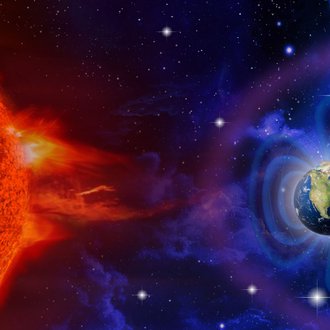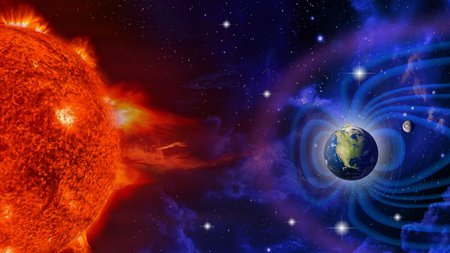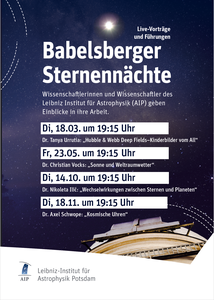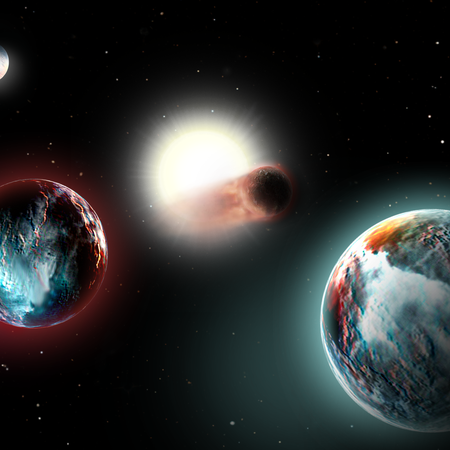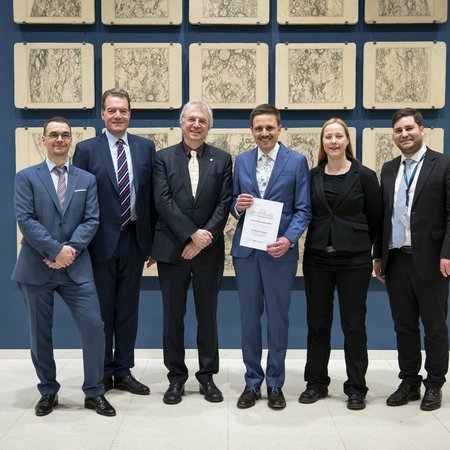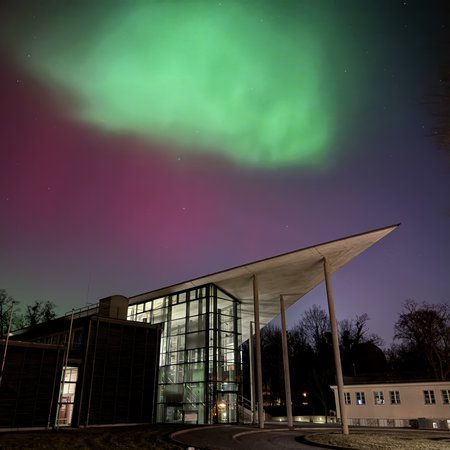Live Babelsberg Starry Night 23 May 2025
On Friday, 23 May 2025, from 7.15 pm, the AIP once again invites guests to a Live Babelsberg Starry Night on the Babelsberg campus. Dr Christian Vocks will speak about ‘The sun and space weather’. In his lecture, Christian Vocks will explain how sunspots, flares and coronal mass eruptions are created - and what influence these phenomena have on the Earth and our technology. This will be followed by a guided tour of the campus.
The activity of the sun is visible in its 11-year sunspot cycle. The strong magnetic fields in sunspots can store energy, which can be released suddenly in solar flares and coronal mass eruptions. Particles are accelerated to high energies and plasma clouds are thrown into interplanetary space, including towards Earth. These phenomena of the active sun can be observed with instruments on the ground and in space across the entire electromagnetic spectrum, from radio waves to visible light and X-rays. In addition, space instruments can register energetic particles in their surroundings. Solar activity has a significant impact on the Earth and near-Earth space, although the Earth's magnetic field protects us from the direct effects. This influence is called ‘space weather’. In his lecture, Christian Vocks presents the cause and mechanisms of solar activity and discusses the impact of space weather on the Earth and our technical systems
Our new Astro*Bistro will be open for visitors on Friday until 7.00 pm and will offer small snacks and drinks. Groups are requested to book in advance.
Further information
The next dates for Live Babelsberg Starry Nights at the AIP research campus are available here:
https://www.aip.de/en/pr/public-events/
The online lectures of the virtual Babelsberg Starry Nights are still continuing and are available at any time and almost everywhere at https://www.aip.de/babelsberger-sternennaechte or via the YouTube channels "Urknall, Weltall und das Leben" (Big Bang, Universe and Life) and "videowissen".
On Thursday, 15 May 2025, the latest lecture by Dr Marcel Pawlowski was published at 8 pm: https://youtu.be/5GU4-HdKzFo. In this talk, the scientist answers questions about his previous lectures on the topics of satellite galaxies, cosmological simulations, dark matter and MOND, alternative theories for gravity.
Images
Big screen size [1000 x 562, 90 KB]
Original size [1920 x 1080, 220 KB]
Big screen size [1000 x 1397, 1.6 MB]
Original size [1338 x 1870, 2.5 MB]
